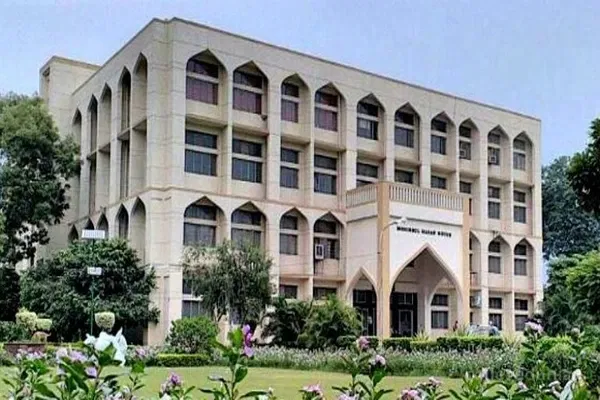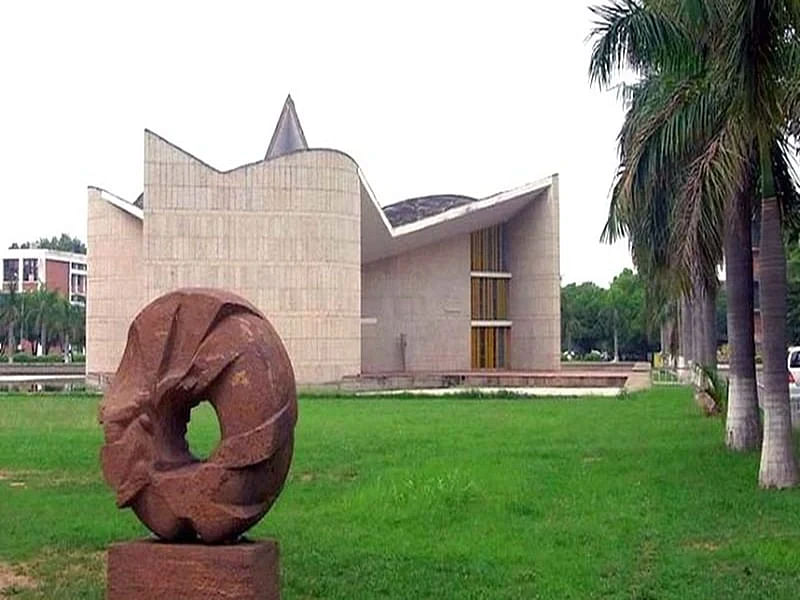BSc Hons Subjects and Syllabus

Latest Updates for BSc Hons
- 03 April 2024 :
NEST Application Form 2024 is out. The last date to apply is May 31, 2024.
- 03 April 2024 :
IISER Application Form 2024 is ongoing and will last till May 13, 2024.
- 03 April 2024 :
IIT JAM Scorecard 2024 is out. The last date to download scorecard is Jul 31, 2024.
- 19 March 2024 :
IMU CET application form has been released and the last date to apply is May 5, 2024.
BSc Honours syllabus is divided into six semesters consisting of diverse theory and practical subjects depending upon the specialization like physics, mathematics, computer science, etc. BSc Hons subjects aim to provide in-depth knowledge only on the specialisation domain to aid students in carrying out advanced research and producing dissertations addressing modern-day problems.
On completing the B.Sc Hons course, the students will have a comprehensive understanding of the concepts of Chemical Bonding and Molecular Structure Ionic Bonding, Behavioral aspects of ecology and physiology, Numeric Constants, etc based on the specialisation they choose.
Table of Contents
BSc Hons Subjects - Core & Electives
B.Sc Hons syllabus can be divided into three parts: core sciences, core elective and general elective subjects. The coursework helps graduates gain a good amount of knowledge on the theoretical study of specialisation and apply it to research methodology.
Apart from regular B.Sc Honours subjects, students are offered several elective subjects under CBCS, which they can choose based on their personal interests and job scopes. Given below is the BSc Hons subjects list::
Specialisation Wise BSc Hons Subjects - Core and Electives
The core B.Sc Honours subjects focus on equipping the students with the skills and knowledge required for a comprehensive understanding of the concepts and specialisations. Listed below are the core and elective BSc Honours subjects for each specialisation:
|
B.Sc Hons Specialisation |
Core Subjects | Elective Subjects |
|
B.Sc Hons Mathematics |
Calculus-I, Analysis-I, Algebra-I, Differential Equation-I, Analysis-II, Probability and Statistics, Calculus-II, Numerical Methods, Algebra-II, Linear Progression | Ethics in Public Domain, Environmental Issues in India, Gender and Society, Financial Management, Physics, Chemistry, Psychology for Living, Symbolic Logic, Biotechnology |
|
BSc Hons Physics |
Mathematical Physics, Mechanics, Waves and Optics, Electricity and Magnetism, Thermal Physics, Digital System and Application, Elements of Modern Physics, Analog System and Application, Solid State Physics, Statistical Mechanics | Introduction to Microcontroller, Physics of Devices and Instrumentation, Advanced Mathematical Physics, Classical Dynamics, Applied Dynamics, Astronomy and Astrophysics, Nanomaterials and Application. |
|
BSc Hons Chemistry |
Organic Chemistry, Physical Chemistry, Atomic Structure & Chemical Bonding, States of Matter & Ionic Equilibrium, Basics and Hydrocarbons, Chemical Thermodynamics and its Applications, Oxygen Containing Functional Groups, Coordination Chemistry | Applications of Computers in Chemistry, Analytical Methods in Chemistry, Molecular Modelling & Drug Design, Novel Inorganic Solids, Green Chemistry, Industrial Chemicals |
|
B.Sc Hons Biology |
Chemistry, Light and Life, Biophysics, Biodiversity, Protein and Enzymes, Cell Biology, Ecology, Metabolism and Integration, Genetics, Growth and Reproduction, Defence Mechanism | Analytical Techniques in Plant Sciences, Stress Biology, Natural Resource management, Wildlife Conservation, Animal Behavior and Chronobiology, Endocrinology, Biomaterials, Microbiology |
|
BSc Hons Computer Science |
Programming Fundamentals using C, Computer System Architecture, Programming in JAVA, Discrete Structures, Data Structures, Operating System, Computer Network, Design and Analysis of Algorithms, Internet Technologies, Database Management Systems, Theory of Computation | Information Security , Network Programming, Microprocessor, Computational Linguistics, Digital Image Processing, Machine Learning, Introduction to Data Science, Cloud Computing, Numerical Methods, System Programming, Data Mining |
Semester Wise B.Sc Hons Syllabus
The B.Sc Hons syllabus structure consists of basic science and specialisation subjects, which helps students understand the concepts in-depth and use them in real-world scenarios. The course split up is into six semesters and varies according to the university guidelines. The semester-wise B.Sc Hons subjects list as recommended by UGC is given below.
BSc Physics Hons Syllabus
Listed below is the semester-wise BSc Physics Honours syllabus:
|
Semester - I |
Semester - II |
| Language-I | Language-II |
| General English-I | General English-II |
| Electronics-I: Analog and Digital | Optics |
| Electronics Laboratory –I | Optics Laboratory |
|
Semester - III |
Semester - IV |
| Language-III | Language-IV |
| General English-III | General English-IV |
| Classical Mechanics | Electromagnetism |
| Mechanics Laboratory | Electromagnetism Laboratory |
|
Semester - V |
Semester - VI |
| Mathematical Physics | Solid State Physics |
| Modern Physics | Nuclear Physics |
| Thermal Physics | Quantum Mechanics |
| Electronics-II: Analog Systems and Applications |
Atomic and Molecular Spectroscopy |
| Computational Techniques in Physics | Microprocessors |
| General Physics Laboratory-I | General Physics Laboratory-II |
| Electronics Laboratory-II |
Microprocessors Laboratory |
| Python Programming Laboratory-I |
Python Programming Laboratory-II |
BSc Hons Chemistry Syllabus
Listed below is the semester-wise BSc Hons Chemistry syllabus:
| Semester-I | Semester-II |
| Language-I | Language-II |
| English-I | English-II |
| Principles of Structure and Bonding |
Chemical Thermodynamics |
| Laboratory Course in General Chemistry |
Laboratory Course on Titrimetry and Thermodynamics |
| Semester-III | Semester-IV |
| Language-III | Language-IV |
| English-III | English-IV |
| Chemical Kinetics and Equilibria | Chemistry of Organic Functional Groups |
| Laboratory Course on Chemical Kinetics and Equilibria |
Laboratory Course on Methods and Synthesis in Organic Chemistry |
| Semester-V | Semester-VI |
| Chemistry of Elements | Advanced Inorganic Chemistry |
| Applications of Thermodynamics and Surface Chemistry |
Analytical Chemistry |
| Dynamic Aspects of Organic Chemistry |
Synthetic Organic Chemistry |
| Chemistry of Biological Molecules | Applications of Spectroscopy |
| Quantum Chemistry | Theoretical Aspects of Spectroscopy |
| Laboratory Course in Inorganic and Physical Chemistry |
Materials of Industrial Importance |
| Laboratory Course in Organic Chemistry and Biochemistry |
Laboratory Course in Synthetic Organic Chemistry and Spectroscopic Techniques |
| Project | Project |
BSc Hons Mathematics Syllabus
Listed below is the semester-wise BSc Hons Mathematics syllabus:
| Semester-I | Semester-II |
| Calculus | Differential Equation |
| Algebra | Real Analysis |
| Semester-III | Semester-IV |
| Theory of Real Functions | Riemann Integration and Series of Functions |
| Group Theory-I | Ring Theory and Linear Algebra |
| PDE and Systems of ODE | Numerical Methods |
| Semester-V | Semester-VI |
| Multivariate Calculus | Metric Spaces and Complex Analysis |
| Group Theory-II | Ring Theory and Linear Algebra-II |
BSc Hons Biology Syllabus
Listed below is the semester-wise BSc Biology syllabus:
| Semester-I | Semester-II |
| Chemistry | Emglish Communication |
| Light and Life | BioPhysics |
| Environmental Science | Biodiversity |
| General Elective-I | General Elective-II |
| Semester-III | Semester-IV |
| Protiens and Enzymes | Systems Physiology |
| Cell Biology | Metabolism and Integration |
| Ecology | Molecular Biology |
| General Elective-III | General Elective-IV |
| Semester-V | Semester-VI |
| Growth and Reproduction | Defence Mechanism |
| Genetics | Evolutionary Biology |
| Discipline Specific Elective – 1 | Discipline Specific Elective – 3 |
| Discipline Specific Elective – 2 | Discipline Specific Elective – 4 |
BSc Hons Computer Science Syllabus
Listed below is the semester-wise BSc Honours Computer Science syllabus:
| Semester-I | Semester-II |
| English Communication | Enviornmental Science |
| Programming Fundamentals usingC/C++ | Programming in JAVA |
| Computer System Architecture | Discrete Structure |
| General Elective-I | General Elective-II |
| Semester-III | Semester-IV |
| Data Structures | Design and Analysis of Algorithms |
| Operating Systems | Software Engineering |
| Computer Networks | Database Management System |
| General Elective-III | General Elective-IV |
| Semester-V | Semester-VI |
| Internet Technologies | Artificial Intelligence |
| Theory of Computation | Computer Graphics |
| Discipline Specific Elective-1 | Discipline Specific Elective-3 |
| Discipline Specific Elective-2 | Discipline Specific Elective-4 |
College-Wise BSc Hons Syllabus
The B.Sc Hons syllabus PDF 2024 can be downloaded from the college official website of the respective colleges. The syllabus structure varies based on the university or institution but the subjects and the concepts remain the same. Listed below is the BSc Hons syllabus from top colleges in India:
Jadavpur University BSc Mathematics Hons Syllabus
The BSc Hons Mathematics syllabus at Jadavpur University is focused on enabling the students with the knowledge about the mathematical equations and to apply them in real-world scenarios. Listed below is the semester-wise BSc Hons syllabus for mathematics at Jadavpur University:
|
Semester-I |
Semester-II |
|
Calculus |
Mechanics-I |
|
Geometry |
Differential Equation-I |
|
Algebra-I |
Algebra-II |
|
Semester-III |
Semester-IV |
|
Mechanics-II |
Vector Analysis |
|
Differential Equation-II |
Differential Equation-III |
|
Analysis-I |
Analysis-II |
|
Semester-V |
Semester-VI |
|
Numerical Methods |
Probability Theory |
|
Numerical Methods Practical using C |
Linear Programming and Optimization |
|
Algebra-III |
Algebra-IV |
|
Analysis-III |
Analysis-IV |
|
Optional Paper-I |
Optional Paper-III |
|
Optional Paper-II |
Optional Paper-IV |
Sambalpur University BSc Physics Hons Syllabus
The Sambalpur University BSc Hons syllabus for Physics focuses on topics such as Calculus, Vector Algebra, Orthogonal Curvilinear Coordinates, Rotational Dynamics, Inertial Systems, etc to help students understand the concepts and foundation of Physics. Listed below is the semester-wise BSc Hons syllabus for Physics at Sambalpur University:
|
Semester-I |
Semester-II |
|
Mathematical Physics-I |
Electricity and Magnetism |
|
Mathematical Physics-I Lab |
Electricity and Magnetism Lab |
|
Mechanics |
Waves and Optics |
|
Mechanics Lab |
Waves and Optics Lab |
|
General Elective-I |
General Elective-II |
|
Semester-III |
Semester-IV |
|
Mathematical Physics-II |
Mathematical Physics III |
|
Mathematical Physics-II Lab |
Mathematical Physics III Lab |
|
Thermal Physics |
Elements of Modern Physics Lab |
|
Thermal Physics Lab |
Elements of Modern Physics |
|
Analog Systems and Applications |
Digital Systems and Applications |
|
Analog Systems and Applications Lab |
Digital Systems and Applications Lab |
|
General Elective-III |
General Elective-IV |
|
Semester-V |
Semester-VI |
|
Quantum Mechanics & 4 4 Papers Applications |
Electro-magnetic Theory |
|
Quantum Mechanics Lab |
Electro-magnetic Theory Lab |
|
Solid State Physics |
Statistical Mechanics |
|
Solid State Physics Lab |
Statistical Mechanics Lab |
B.Sc Hons Course Structure
The B.Sc Hons course structure focuses on providing knowledge on particular specialisation areas, including theoretical and practical training. The B.Sc Hons first-year subjects are very basic and are an extension of higher secondary schooling sciences subjects. It offers a basic introduction to advanced concepts that students will pursue in the forthcoming semesters.
The coursework also includes two types of electives, namely general elective and core-elective. Under the CBCS, students are given the freedom to choose their desired elective subjects about the study domain. The final semester includes a mandatory dissertation and viva voce evaluation. The B.Sc Hons course structure includes:
- VI Semesters
- Core subjects
- General and Core Elective subjects
- Practical training
- Dissertation
- Workshop
B.Sc Hons Teaching Methodology and Techniques
The teaching methodology deployed for a theory-oriented course is traditional classroom lecture-based teaching. Though most of the B.Sc Hons specialisations fall under theoretical study, some specialisations offer laboratory sessions. The course prioritises providing advanced research skills over standard science courses supported by intensive theory-based study.
Some of the standard teaching methodologies include:
- Lecture-based training
- Practical Sessions
- Workshops
- Internships
- Dissertations
- Group discussions
BSc Hons Project Topics
The major part of the B.Sc Hons course is the final dissertation. The mandatory dissertation/project helps students to apply the theoretical concepts pursued in research scenarios. A dissertation can be done as an individual or as a team in partnership with any firm. Students often take up internships to obtain experimental data to support their thesis and use their issues to enhance their research papers.
Popular B.Sc Hons dissertation topics include:
- Design of AI-based finance algorithm
- Spectroscopic Analysis of U.V. Products
- Control of Fluid Catalytic Value
- Mathematical Modelling using PDE
BSc Hons Reference Books
BSc Hons books can be referred by students to gain a better and more in-depth understanding of a particular topic or subject by famous authors and experts on topics such as Algebra, Calculus, Thermodynamics, Electromagnetics, etc. Listed below are some of the BSc Hons books for student’s reference:
|
Books |
Topics Covered |
Authors |
|
Advanced Practical Physics for students |
Differential and Integral Calculus, Elasticity, Surface Tension, Viscosity, Calorimetry, Reflection, Refraction |
BL Flint |
|
Data Structures |
Fundamentals of Data Structures in C, Data Structure Implementation |
Ellis Horowitz |
|
Development through the lifespan |
Research Strategies in Human Development, Genetic and environmental foundations, Cognitive Development |
Berk L.E |
|
Vibrations and Waves |
Simple Harmonic Motion, Damped Organic Oscillator, Travelling Waves, Standing Waves |
AP French |
|
Discrete Mathematics with Graph Theory |
Relations and Functions, Sequences Induction and Recursion, Introduction to Number Theory, Counting and Probability |
Edgar Goodaire |























